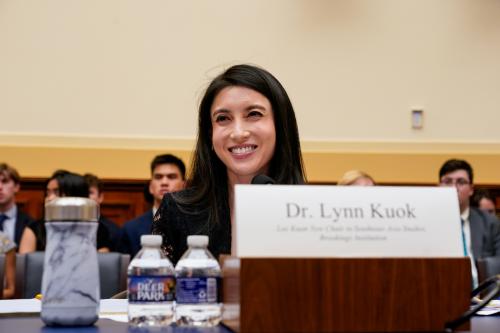Former President George W. Bush and his wife are currently touring Africa and visiting Tanzania, Zambia and Ethiopia from December 1 to 5. The president and Mrs. Bush will use the trip to focus on some of the initiatives that Bush advocated for and strongly supported while in office. Despite demonstrating a unique commitment to the African continent, much like President Clinton before him, Bush’s record tends to be underrated and he scored consistently lower than Obama in a 2008 PEW survey that asked individuals from various countries whether each candidate would “do the right thing in world affairs.” Conversely, Bush has high approval rating on the continent itself, making it instructive to reflect on the former president’s African initiatives, which bring him such admiration from sub-Saharan Africa. Interestingly, this trip takes place just after the GOP candidates have expressed their views on foreign policy with most GOP candidates looking critically at spending on assistance for development.
Bush’s most important initiatives focused on alleviating major heath challenges facing the African people. In 2003, President Bush launched the President’s Emergency Plan for AIDS Relief (PEPFAR), which was then the largest single effort by any nation targeting a specific disease. The program sought to establish and scale up HIV/AIDS prevention, care and treatment programs. According to the PEPFAR program website, “during its first phase, PEPFAR supported the provision of treatment to more than two million people, care to more than 10 million people, including more than four million orphans and vulnerable children, and prevention of mother-to-child treatment services.” Under President Bush, this program was criticized for its emphasis on abstinence based prevention, but on the whole this initiative was an unprecedented attack against the AIDS pandemic.
Bush then targeted another deadly disease with the launch of the President’s Malaria Initiative (PMI) in 2005. The PMI had the initial goal of reducing malaria-related deaths by 50 percent in 15 focus countries. Malaria places a huge burden on Africans—causing millions of adult deaths every year and significant reductions in productivity. Results on the PMI website show that the program has major effect in reducing prevalence of malaria, child mortality and related deaths.
The Bush administration’s African foreign policy did not stop with health initiatives. Bush led the push for the G-8 nations to demand the multi-lateral debt relief initiative (MDRI), which encouraged the IMF, World Bank and the U.S. to reduce the debt burden of highly indebted poor countries. According to the African Development Bank, as of 2009 the MDRI relieved debt for 21 African countries. In 2004, Bush also successfully passed reforms that converted poor country debt into grants. Additionally, Bush tackled security issues. The president was one of the first world leaders to label the conflict in South Sudan genocide. Although, Bush received criticism for not recognizing the indictment of Omar al-Bashir by the International Criminal Court, he did put in place sanctions on oil coming from the Republic of Sudan in order to pressure a peace deal. These sanctions currently remain in place. Bush was also determined to create an Africa-based central command for U.S. forces. However, he did not win the support of African leaders to base the command, now called Africom, on the continent, with the base now resting in Germany. Africom, however, is now an implementing partner for the Department of Defense and PEPFAR, supporting training and testing throughout Africa.
Following the format of Presidents Carter and Clinton, Bush continues to focus on global health beyond his two presidential terms. His global health cause célèbre is the Pink Ribbon Initiative, an organization formed by the George Bush Presidential Center Institute in partnership with the U.N. and the Susan J. Komen Foundation, to expand access to cervical and breast cancer screening in Africa and Asia. Testing for cervical cancer can be done easily with a drop of vinegar quickly highlighting cancerous tissue; however, screening remains unavailable in many parts of Asia and Africa. Both Laura and George Bush will try to build awareness of this issue during their trip this week. Despite the perception that Bush was only involved in counterterrorism, he built an expansive African foreign policy base that bears as much recognition as the Clinton administration’s African Growth and Opportunities Act and Global Health Initiative.
The president’s trip is welcome and demonstrates his continued interest on issues that affect the continent. Reflecting on President Bush’s initiatives shows that he has not received due credit for his support of Africa and African issues and, despite the misconception that he focused only on terrorism and national security, his commitment to Africa leaves a strong legacy that is difficult to ignore.
The Brookings Institution is committed to quality, independence, and impact.
We are supported by a diverse array of funders. In line with our values and policies, each Brookings publication represents the sole views of its author(s).



Commentary
Op-edPresident George W. Bush’s Trip to Africa: Reflections on Foreign Policies toward Africa
December 2, 2011